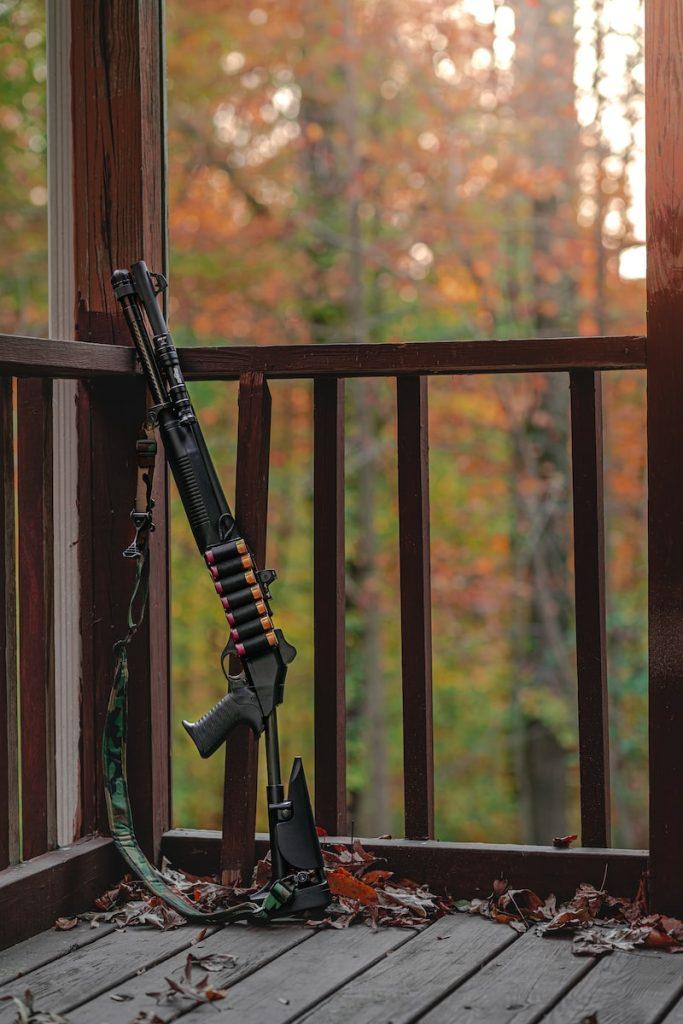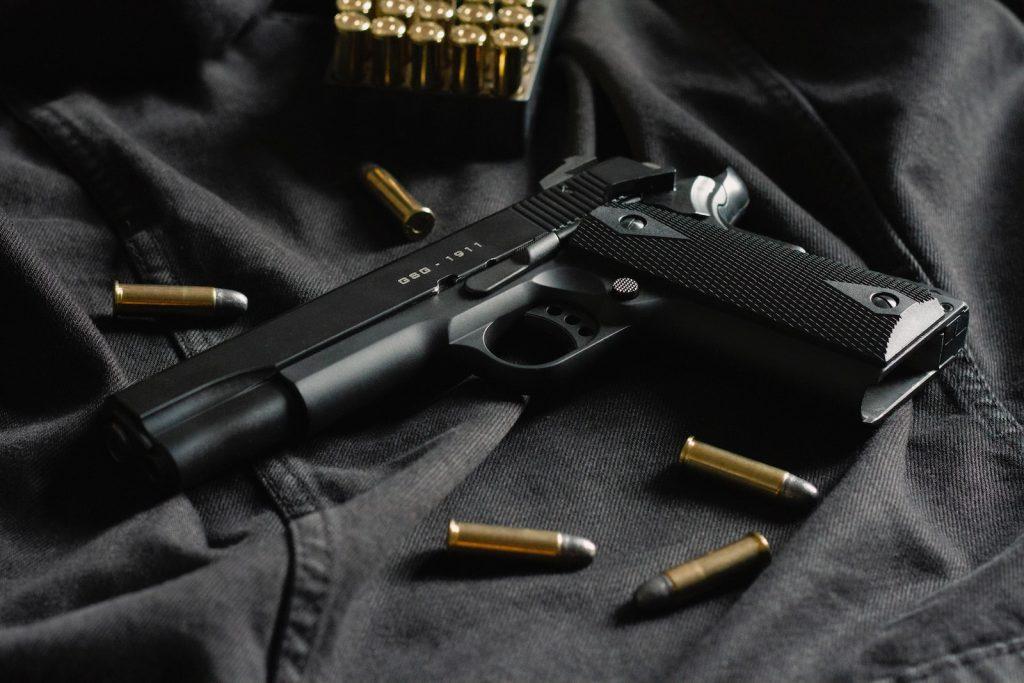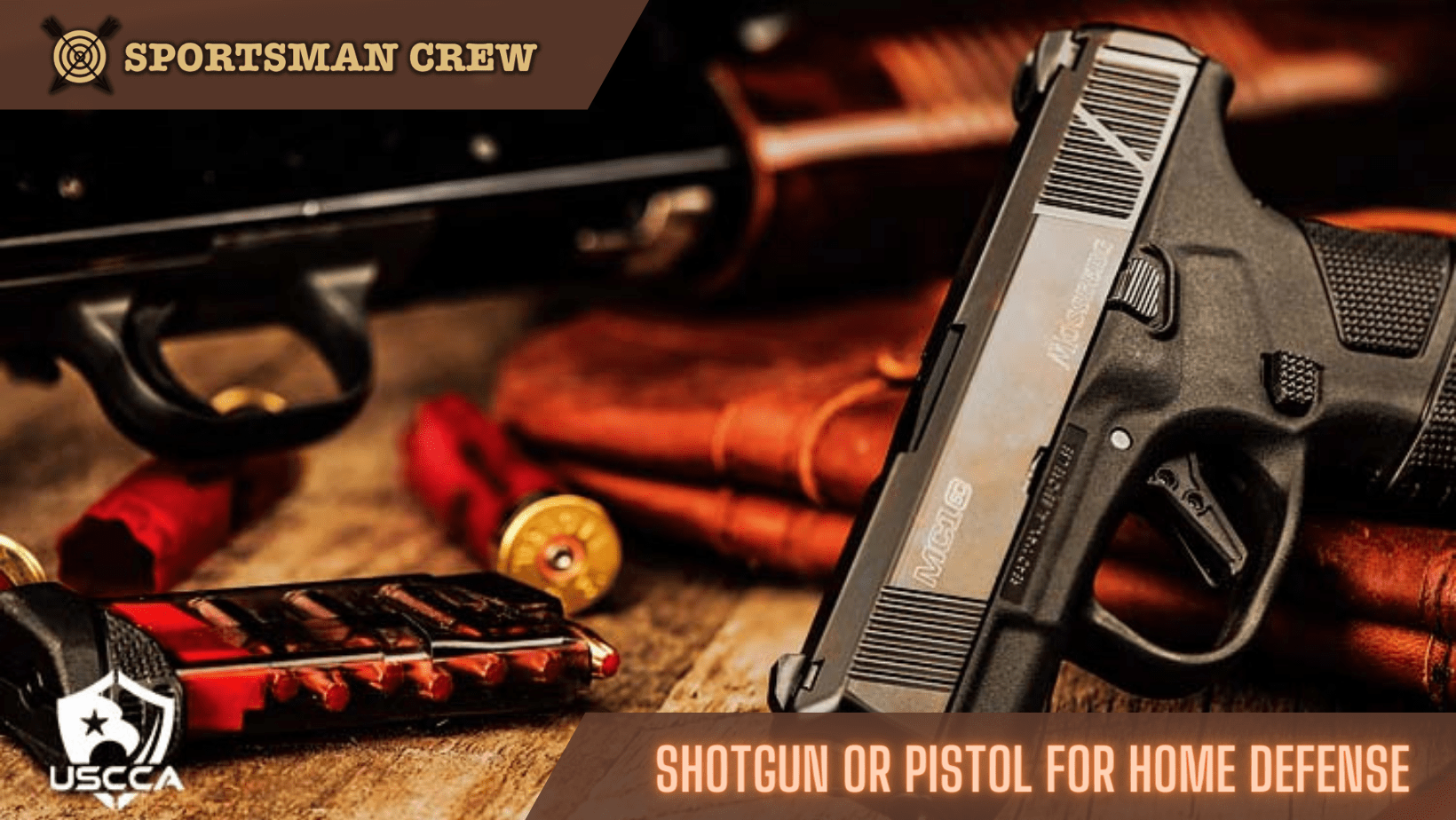Protecting your home is essential, but should you use a handgun or shotgun for home defense? For many homeowners, the decision of what type of firearm to use for home defense is a critical one. Guns can provide both a sense of security and peace of mind- but it’s important to understand the differences between handguns and shotguns and make an informed decision. This article will provide insight into which type of gun is best suited for home defense.
By exploring the strengths and weaknesses of handguns and shotguns, you will be able to make an informed decision when it comes to protecting your home and family. A gun can be great protection for survival or home defense.
Table of Contents
What to Consider When Choosing Between a Handgun or Shotgun for Home Defense
When it comes to choosing a firearm for home defense, there are many considerations to bear in mind. Two of the most popular choices are the handgun and the shotgun. Both have their advantages, and both have their drawbacks. Before making a decision, it is important to think carefully about the specific needs of each situation.
The primary advantage of a handgun is its portability. Handguns are relatively small and easy to carry, making them a convenient option for those who may need to move quickly to protect themselves or their family. They also tend to have a greater magazine capacity than shotguns, allowing for quicker firing of multiple shots.
On the other hand, the main advantage of a shotgun is its stopping power. Shotguns have tremendous power, and the spread of the pellets can increase the chances of hitting a target. The downside is that shotguns are much larger and more cumbersome to carry, and they are more difficult to aim accurately.
When deciding which firearm is best for home defense, it is important to consider the specific environment. A handgun may be appropriate for those who need to be able to quickly move and fire, while a shotgun may be better suited to a larger home with more open spaces. Additionally, it is important to consider the level of experience of the user and how comfortable they feel with the particular firearm.
Finally, it is important to remember that any firearm should only be used as a last resort. Non-lethal methods of self-defense, such as pepper spray or a Taser, should always be considered before resorting to a firearm. No matter which firearm is chosen, it is important to practice safe and responsible gun ownership.
Overview of Different Handguns and Shotguns for Home Defense

Handguns and shotguns are two of the most popular firearms for home defense. Handguns are easy to maneuver, easy to store, and require less training to use than shotguns. However, shotguns are more powerful and can be used for a variety of defensive applications.
Handguns: Handguns come in a variety of calibers, from .22 LR to .45 ACP, and are typically semi-automatic. Smaller calibers, such as .22 LR, are great for home defense as they don’t have a lot of recoil, making it easier to shoot accurately. However, these rounds lack the power of larger caliber rounds, such as .45 ACP. Pistols are also easy to store and conceal, making them great for self-defense.
Shotguns: Shotguns are more powerful than handguns and can be used for a variety of defensive applications. These firearms come in a variety of gauges, with 12-gauge being the most popular for home defense. Shotguns are more powerful than handguns and can fire multiple rounds in a single shot. Additionally, they require less accuracy than handguns, making them great for close-range defense.
Both handguns and shotguns have their advantages and disadvantages for home defense, and it is important to consider your specific needs when deciding on the best firearm for you. Handguns are easy to maneuver, store, and use, but lack the power of shotguns. On the other hand, shotguns are more powerful and can be used for a variety of defensive applications, but require more training and are less easy to store.
Reasons to Choose a Handgun or Shotgun for Home Defense
A handgun or shotgun can make an excellent choice for home defense. Both weapons are powerful, easy to operate, and can provide enough stopping power to stop an intruder who has broken into your home.
Handguns are much easier to maneuver in close quarters and take up less space than a shotgun. They are also typically easier to carry and can be used with one hand. Handguns are also generally cheaper and easier to obtain than shotguns. The main drawback of a handgun is its limited range and lower stopping power compared to a shotgun.
Shotguns offer greater range, greater stopping power, and can hold multiple shells at once. They are also more powerful and can be loaded with various types of ammunition, such as buckshot, birdshot, and slugs. The main drawback of a shotgun is that it is considerably larger and heavier than a handgun, making it more difficult to maneuver in close quarters.
Ultimately, the decision of which weapon to choose for home defense comes down to personal preference and the particular home security situation. Both handguns and shotguns offer excellent stopping power and can be used to protect your home and family.
What Are the Pros and Cons of Using a Handgun or Shotgun for Home Defense?

When it comes to home defense, both handguns and shotguns have a place. Handguns are often seen as the best choice because they are lightweight, small, and concealable, making them easier to use in tight spaces. On the other hand, shotguns are generally more powerful and accurate over longer distances, which can be important for home defense.
Pros of Handgun for Home Defense
- Lightweight and easy to carry
- Easier to use in tight spaces
- More concealable
- More portable
Cons of Handgun for Home Defense
- Less powerful than shotguns
- Less accurate at longer distances
- Lower capacity of rounds
Pros of Shotgun for Home Defense
- More powerful than handguns
- More accurate at longer distances
- Higher capacity of rounds
- More intimidating
Cons of Shotgun for Home Defense
- Heavier and more difficult to carry
- Less concealable
- Less maneuverable in tight spaces
Understanding Gun Laws When Using a Handgun or Shotgun for Home Defense
Using a gun for home defense is a serious decision and it is important to understand the gun laws that apply. Depending on the state you live in, there may be different laws for owning, carrying and using a firearm for home defense.
In most states, it is legal to own a handgun and/or a shotgun for home defense. However, it is important to be aware of the laws in your state regarding the purchase, registration, possession, transport, and use of a handgun or shotgun. Additionally, there may be laws regarding the types of ammunition that can be used, the storage of firearms, and other restrictions that affect the use of a firearm for home defense.
If you plan to use a handgun or shotgun for home defense, you must understand the relevant laws and abide by them. For example, in some states, it is illegal to use a firearm for self-defense unless you are in reasonable fear of imminent death or serious bodily harm. In addition, it is important to understand any restrictions on the types of firearms you can use, such as a ban on certain types of semi-automatic weapons.
Finally, it is important to remember that owning and using a firearm carries with it certain responsibilities. You must ensure that your firearm is safely and securely stored and that you are familiar with safe gun handling practices. Additionally, you should understand the laws regarding when and how you can use your firearm in order to avoid any legal complications.
By understanding the applicable laws and taking the necessary precautions, you can feel confident that you are taking the responsible steps to protect your family and property by using a firearm for home defense.
Best Practices for Safely Storing a Handgun or Shotgun for Home Defense

Keep your gun unloaded and locked in a secure location: It is important to keep your gun unloaded and securely locked away from children and other unauthorized individuals. You can keep your gun in a gun safe or storage cabinet that is secured with a quality lock. Make sure the safe or cabinet is too heavy to be easily moved and that it cannot be easily accessed by anyone other than yourself.
Store ammunition separately: Make sure to store ammunition in a separate, locked container from the gun itself. Ensure that the ammunition is not accessible to children or anyone else who should not have access to it.
Securely store gun when not in use: When not in use, it is important to store your gun in a safe and secure location. This could be in a gun safe, cabinet, or other securely locked location.
Use trigger locks or other locking devices: Trigger locks are an effective way to prevent unauthorized access to a firearm. They are easy to install and remove and can be used to secure a firearm when not in use.
Be aware of your surroundings: Be aware of your surroundings when storing your gun. Make sure that it is not in an area that can be easily accessed by unauthorized individuals.
Educate yourself and your family: Educate yourself and your family about gun safety and the importance of properly storing and securing firearms. Make sure that everyone in the household is aware of and adheres to safe gun storage practices.
Follow all state and local laws: Make sure to follow all state and local laws related to gun storage. These laws may vary from place to place, so it is important to be aware of them.
Following these best practices for safely storing a handgun or shotgun for home defense will help ensure that your firearm is stored securely and out of reach of unauthorized individuals. Additionally, taking the time to educate yourself and your family about gun safety will help ensure that everyone in the household is aware of and adheres to the proper storage practices.
What Gear and Accessories Do You Need with a Handgun or Shotgun for Home Defense?
When it comes to home defense, you will need more than just a handgun or shotgun. In order to protect your home, you’ll need the right gear and accessories. Here is a list of items you should consider investing in:
- Holster – A good holster is essential for safe and easy access to your handgun or shotgun. Look for a reliable, comfortable, and secure option that fits your firearm.
- Optics – Optics such as a red dot sight can increase accuracy and speed of target acquisition.
- Flashlight – A flashlight is a must-have for any home defense firearm. It allows you to identify threats in low-light situations and gives you a tactical advantage.
- Ammunition – You’ll need to stock up on ammunition for your home defense firearm. Make sure your magazine is full and you have extra magazines or speed loaders for quick reloads.
- Hearing Protection – Hearing protection is an important safety precaution to take when shooting a firearm indoors.
- Extra Magazine Pouches – Extra magazine pouches allow you to carry spare ammunition with you as you move around your home.
- Gun Cleaning Kit – A gun cleaning kit is essential for maintaining your firearm and ensuring its longevity.
- Training – Investing in training will ensure that you know how to safely and effectively use your firearm for home defense.
With the right gear and accessories, you can be prepared for any home defense situation. Invest in quality equipment, practice often, and stay safe.
Conclusion
The choice between a handgun or shotgun for home defense is an important one. Handguns are easier to maneuver in tight spaces, while shotguns offer greater stopping power. Ultimately, the best choice depends on your specific situation. If you’re looking for a weapon to keep close at hand, a handgun may be the best choice. If you need to protect a larger area, a shotgun may be the better option.
Ultimately, the choice is yours. Whatever you decide, make sure you are comfortable with the weapon and that you understand how to use it safely and properly. Remember, the best defense is always being prepared.
